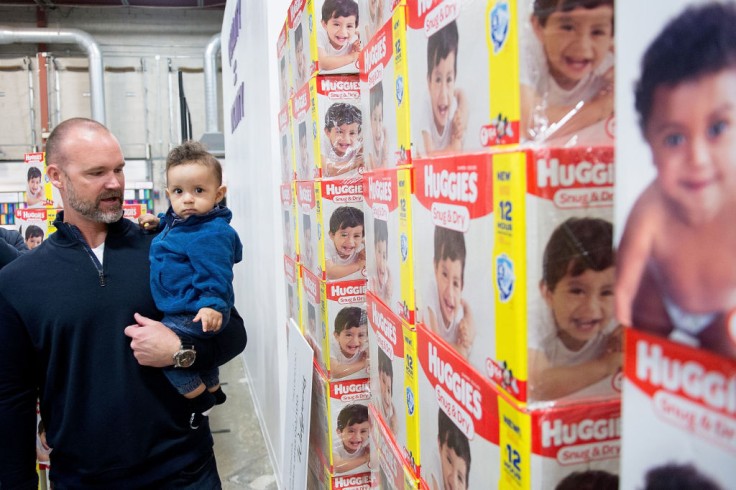
More than a third of Connecticut families with young kids struggle to afford diapers, a staggering statistic considering it is an essential, everyday child care item.
With 35,000 babies born annually in hospitals across Connecticut, including 1,000 infants born at UConn John Dempsey Hospital, there are some kids in the state who are living in poverty daily. In the city of Hartford, for example, there is a 37.2 percent rate of child poverty. Other cities in the state of Connecticut have similar statistics, according to UConn Today.
To help address this issue, the Connecticut Diaper Bank in collaboration with the Connecticut Department of Housing and the Connecticut Hospital Association is launching Diaper Connections statewide. It is a free diaper distribution network for those families who are struggling financially.
Diaper Connections launched after program's successful pilot test run at UConn Health's clinic and hospitals
The Connecticut Department of Housing jumpstarted this statewide effort by allocating $500,000 in funding and additional resources, according to WTNH. Diaper Connections is a new way for the Diaper Bank of Connecticut and the state's health systems to reach more families as well as enhance the health status not only of infants and toddlers but also their parents by addressing the very important problem of diaper need.
The state decided to launch the program after a highly successful summer pilot test run by Diaper Connections at UConn Health's clinics and hospital. UConn Health was the first in the state of Connecticut to standup a diaper program in its Women's Health and Family Medicine clinics. It is already having a positive impact on their maternal-health patients and their kids by curbing the families' diaper worries.
Anne Horbatuck RN, BSN, MBA, who is the Chief Operating Officer of UConn Medical Group, said that the program simply works by having medical assistants screen patients for diaper insecurity during office visits. They then offer diaper supplies to families in need in real-time with all data being tracked in the electronic health record of the patient.
Diaper insecurity can lead to postpartum depression
UConn Health Interim CEO Dr. Bruce T. Liang said that they celebrate the new statewide action and solution that is underway, which expands the program from just UConn Health to now every one of the 27 acute care hospitals in the state.
Liang said that while it may seem simple and basic to most, their research data shows that diapers are linked to both child and maternal health. He said that adding just two patient screening questions to assess the diaper needs of a family can be really life-changing and transformative for some mothers and babies.
The pilot Diaper Connections program of UConn Health found 30 percent of families that they screened expressed a need for diaper support. The data showed that the top predictor of postpartum depressive symptoms is diaper insecurity, which makes this Diaper Connections program even more important.